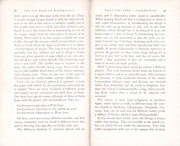Beer yeast
Posted: Sun Jun 09, 2024 10:03 am
Renewable energy and sustainability discussions
https://camelot-forum.co.uk/phpBB3/
https://camelot-forum.co.uk/phpBB3/viewtopic.php?f=19&t=3123
I have heard the same hypothesis but also hat the yeast variety makes no diference to the Ethanol/CO2 as the chemistry is normally:AE-NMidlands wrote: ↑Tue Jun 18, 2024 9:01 am Good news about the bread. It will be interesting to see how the wine turns out. I understood that bread yeast was selected for its ability to blow gas bubbles to make the loaf rise, whereas wine yeast is intended not to make lots of gas but to maximise alcohol production.
I used a few tubs of Malt extract back on the day before going full all grain brewing. I seem to remember maltose & dextrose as body additions. Different yeast strains had higher or lower finishing gravity. I liked a beer that finished about 1.014. Gave the beer body. Some of the wild yeast strains I used from Belguim would rip through the sugars at an alarming rate but would throw off different esters which are a keynote in many Belgian beers. I also had a crack at my own brewing candy which was fun.Countrypaul wrote: ↑Tue Jun 18, 2024 12:23 pmI have heard the same hypothesis but also hat the yeast variety makes no diference to the Ethanol/CO2 as the chemistry is normally:AE-NMidlands wrote: ↑Tue Jun 18, 2024 9:01 am Good news about the bread. It will be interesting to see how the wine turns out. I understood that bread yeast was selected for its ability to blow gas bubbles to make the loaf rise, whereas wine yeast is intended not to make lots of gas but to maximise alcohol production.
C6H12O6 -> 2 C2H5OH + 2 CO2
Glucose, Fructose and Sucrose (combination of the first 2) are common, i am not sure whether other sugars react similarly. I can certainly beieve some yeasts might tolerate a higher concentration of alcohol and thereforebe more suitable for wine. Have you found any reference that supports the hypothesis about bread/wine yeasts? My father often used bread yeast for wine making and by the results of various competition judges the results were clearly more than acceptable
I agree that the chemistry must be the same, and had a memory that the fast gas production also blew off alcohol with the CO2 (which is why one of my books says add syrup rather than dry sugar, or the frothing off of CO2 nucleating on the crystals will drive off alcohol at the same time.) However I think that the page below explains that beer yeast working aerobically at the surface will be using up sugars to multiply quickly, rather than working anaerobically to make alcohol...Countrypaul wrote: ↑Tue Jun 18, 2024 12:23 pmI have heard the same hypothesis but also hat the yeast variety makes no diference to the Ethanol/CO2 as the chemistry is normally:AE-NMidlands wrote: ↑Tue Jun 18, 2024 9:01 am Good news about the bread. It will be interesting to see how the wine turns out. I understood that bread yeast was selected for its ability to blow gas bubbles to make the loaf rise, whereas wine yeast is intended not to make lots of gas but to maximise alcohol production.
C6H12O6 -> 2 C2H5OH + 2 CO2
Glucose, Fructose and Sucrose (combination of the first 2) are common, i am not sure whether other sugars react similarly. I can certainly beieve some yeasts might tolerate a higher concentration of alcohol and thereforebe more suitable for wine. Have you found any reference that supports the hypothesis about bread/wine yeasts? My father often used bread yeast for wine making and by the results of various competition judges the results were clearly more than acceptable
